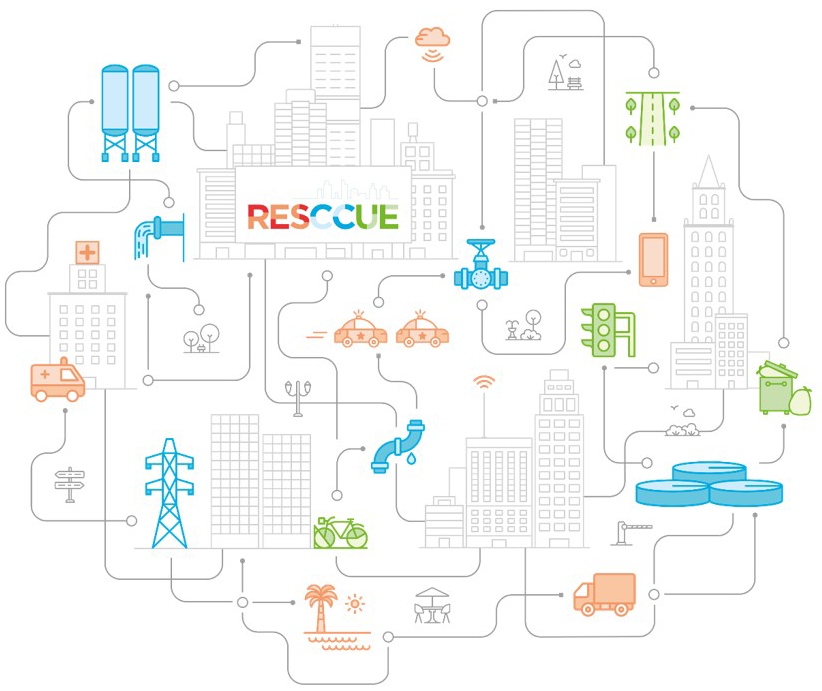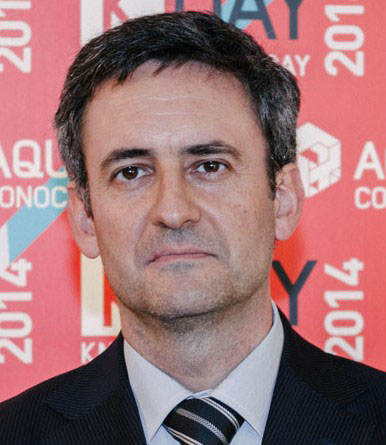Cities are complex multidimensional systems containing an endless number of elements constantly interacting among themselves. They are growing exponentially, while becoming smarter and more innovative. However, they are still very vulnerable and climate change is precisely posing more and more threats. This is why the United Nations recently stated that managing urban areas has become one of the most important development challenges of the 21st century.
In this context, the RESCCUE project (RESilience to cope with Climate Change in Urban arEas – a multisectorial approach focusing on water) was born in May 2016. RESCCUE is Europe’s first large-scale innovation and urban resilience project, aimed to improve the capability of cities to anticipate, prepare for, respond to, and recover from significant multi-hazard threats with minimum damage. The RESCCUE approach turned a new page by leaving sectoral approaches behind and instead considering the cities as systems of interdependent systems. The four-year duration project goes beyond the conventional analysis of the climate change effects on single critical infrastructures, such as energy, water or transportation. The RESCCUE perspective is a holistic one, which focuses rather on the interconnections than on separate city units of the urban infrastructure networks.

RESCCUE final product: Replicable methodologies and tools
The RESCCUE objective is to produce a set of models and tools to analyze urban resilience based on a multisectorial approach that overcomes current difficulties related to lack of information integration of the different urban services. To interconnect the several sectorial models, the project takes advantage of the existent HAZUR tool and methodology to make it the basis of further developed software able to perform the assessment, management and planning of urban resilience in an integral way, assessing the interdependencies and analysing the several cascading effects (which will be further studied by coupling several sectorial models such as urban drainage and sea water quality models).
The project analyses real interdependencies of three European cities: Barcelona, Bristol and Lisbon – all very different in terms of climate type and city characteristics. The aim of having three cities as the validation platform and first application of RESCCUE’s results will guarantee that the final product, innovative models and tools for urban resilience assessment, is complete and replicable.
Although urban resilience focuses on improving the city capacity to all kinds of threats, it is worth noting that RESCCUE specifically focuses on the climate-change related impacts, as it has become a critical issue that cities must adapt to.
This is precisely why RESCCUE and its holistic approach to tackle urban resilience, is also producing key results related to climate change adaptation in cities. That’s why RESCCUE joined Placard and Bingo in the organization of ECCA 2019 Conference. Therefore, in Lisbon you will be able to see quite a lot of results produced by the RESCCUE consortium, which by then will be entering its final year.


